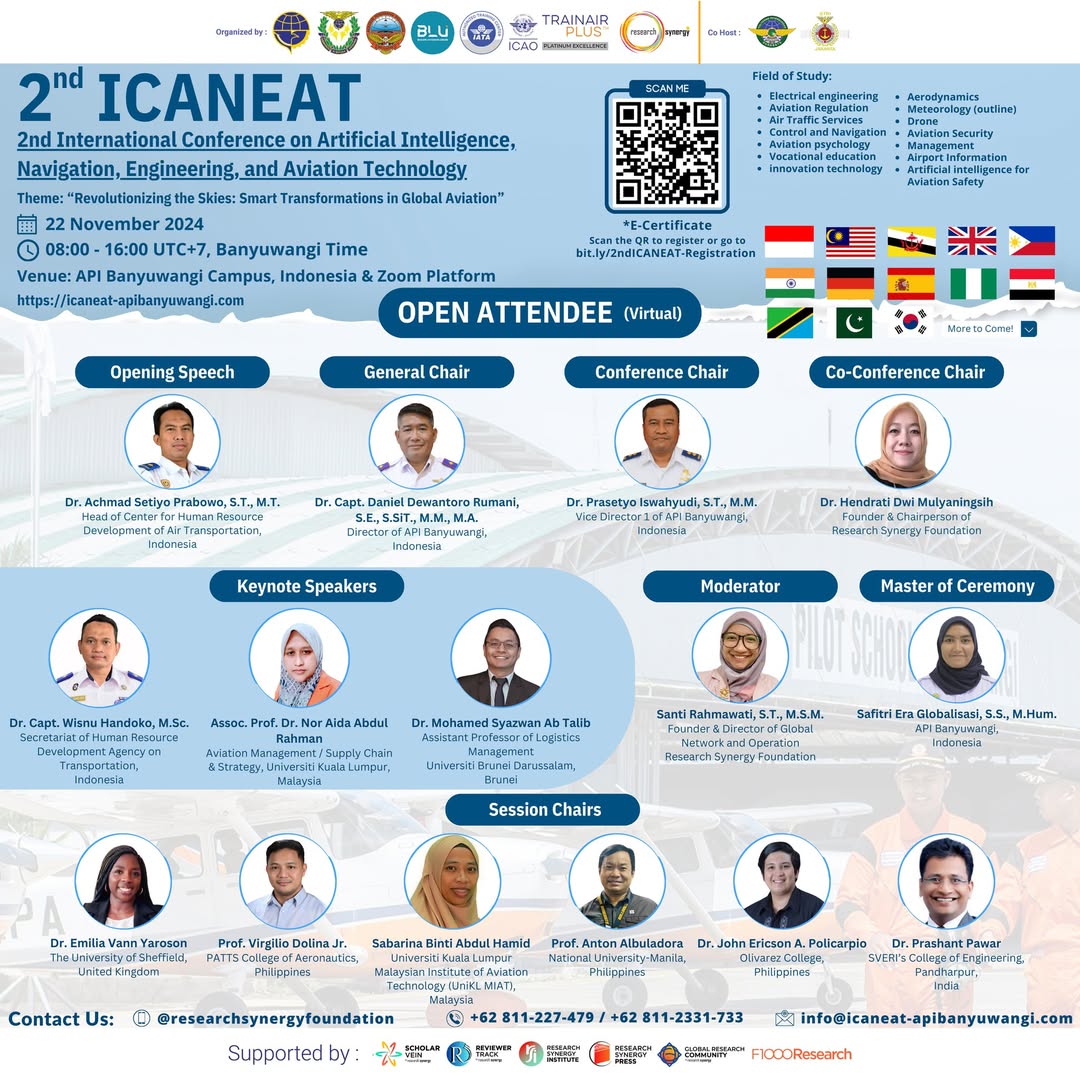The Effectiveness of Execution of Replacement Money in Corruption Cases from a Legal and Implementation Perspective in Indonesia
Keywords:
Execution of Compensation; Corruption Crimes; Legal PerspectiveAbstract
This study aims to evaluate the effectiveness of the enforcement of compensatory money in corruption crimes in Indonesia, focusing on the legal perspective and implementation in the field. Compensatory money, as part of the additional sanctions under the criminal law on corruption, aims to compensate state losses resulting from corruption and provide a deterrent effect for perpetrators. This study examines how the mechanism for compensatory money enforcement is regulated in Law Number 31 of 1999 in conjunction with Law Number 20 of 2001 concerning the Eradication of Corruption, as well as the challenges faced by law enforcement agencies, particularly the Prosecutor's Office, in implementing this enforcement. The research method used is a normative-empirical approach, which includes a literature review of applicable laws and regulations and interviews with relevant parties such as prosecutors, judges, and legal practitioners. The results indicate that despite clear provisions regarding the enforcement of compensatory money, its implementation is often hampered by technical obstacles, such as difficulties in asset tracking and a lack of cooperation between law enforcement agencies. Furthermore, differences remain in the interpretation and implementation of compensatory money enforcement across regions. This study recommends the need to refine regulations regarding the execution of substitute money, as well as improve coordination between law enforcement agencies to ensure more effective implementation. Therefore, this research is expected to contribute to strengthening legal mechanisms for eradicating corruption in Indonesia and positively impact the quality of fair and transparent justice.
References
[1] R. Sidi, “Corruption Prevention Efforts with Non Penal Policy,” Britain International of Humanities and Social Sciences (BIoHS) Journal, vol. 1, no. 1, pp. 53–63, 2019.
[2] S. Sumarno, “JURIDICAL REVIEW OF THE IMPOSITION OF ADDITIONAL PENALTIES FOR PERPETRATORS OF CORRUPTION IN INDONESIA,” The 4th International and Call for Paper, vol. 1, no. 1.
[3] S. Syahranuddin, I. Ismaidar, S. Ramadani, and T. Aritonang, “Implementation of Village Fund Policy and Anti-Corruption Challenges in Pasar Rawa Village, Gebang District,” in Proceeding International Seminar and Conference on Islamic Studies (ISCIS), 2024.
[4] T. Hidayat, I. Ismaidar, and S. Ramadani, “Criminal Liability of Perpetrators of Money Laundering in Narcotics Cases under the Framework of the United Nations Convention against Corruption (UNCAC) and Law Number 8 of 2010,” Formosa Journal of Science and Technology, vol. 4, no. 5, pp. 1381–1394, 2025.
[5] S. Ramadani, “Protection Of Human Rights Against Female Commercial Sex Workers as Victims of Trafficking in Person Under law Number 21 of 2007 Concerning The Crime of Trafficking in Persons,” in Proceeding International Seminar and Conference on Islamic Studies (ISCIS), 2023.
[6] M. A. Sahlepi, “Bantuan Hukum Bagi Masyarakat Dalam Meningkatkan Akses Keadilan Di Indonesia,” Jurnal Hukum Kaidah: Media Komunikasi dan Informasi Hukum dan Masyarakat, vol. 17, no. 3, pp. 152–159, 2018.
[7] T. Gultom, H. Aspan, and A. Sahlevi, “INTEGRATION OF CUSTOMARY LAW IN THE PRINCIPLE OF LEGALITY TOWARDS A JUST INDONESIAN CRIMINAL LAW SYSTEM,” International Journal of Synergy in Law, Criminal, and Justice, vol. 2, no. 2, pp. 559–567, 2025.
[8] S. Ramadani, “The Role of Government and Society in Preventing Narcotics Crime in Indonesia,” in International Conference Epicentrum of Economic Global Framework, 2024, pp. 632–637.
[9] S. Ramadani, “Juridical Review Of The Criminal Act Of Online Fraud Is Reviewed From Law Number 19 Of 2016 Concerning Information And Electronic Transactions,” Jurnal Cakrawala Hukum, vol. 8, no. 1, 2017.
[10] A. Siagian and S. Ramadani, “Analysis of Baggage Restriction and Surcharge Policy in the Aviation Industry in Indonesia with a Review of Consumer Protection Law Compliance,” in International Conference on Artificial Intelligence, Navigation, Engineering, and Aviation Technology, 2025, pp. 315–319.
[11] S. Ramadhani, C. J. Silitonga, N. S. Lubis, S. Azzhari, and N. Aliah, “Analisis dan Evaluasi Aset Perusahaan,” Yos Soedarso Economic Journal (YEJ), vol. 7, no. 1, pp. 56–60, 2025.
[12] S. H. Syahranuddin and S. H. Suci Ramadani, “CRIMINAL LAW POLICIES IN OVERCOMING CYBER CRIME IN INDONESIA,” in Proceedings of The International Conference on Multi-Disciplines Approaches for The Sustainable Development, 2023, pp. 738–742.
[13] M. M. ZA, R. Rahmayanti, and S. Ramadani, “A Legal Analysis of Criminal Offenses in Employment Affecting Other Persons Within the Workplace, Viewed in Light of Act No. 1 of 1970 regarding Work Safety,” Formosa Journal of Science and Technology, vol. 4, no. 7, pp. 2223–2238, 2025.
[14] T. Haryadi, “Efektivitas Penerapan Pidana Tambahan Uang Pengganti dalam Perspektif Hukum Normatif: Antara Teori dan Praktik Penegakan Hukum,” Disiplin: Majalah Civitas Akademika Sekolah Tinggi Ilmu Hukum sumpah Pemuda, vol. 29, no. 4, pp. 174–187, 2023.
[15] R. Pardede, “INKONSISTENSI HUKUM DALAM PENGEMBALIAN UANG NEGARA HASIL KORUPSI DARI PERSPEKTIF KEPASTIAN HUKUM,” JOURNAL OF SCIENCE AND SOCIAL RESEARCH, vol. 8, no. 3, pp. 4231–4238, 2025.
[16] S. Mulatua and F. Nggeboe, “Efektifitas Pidana Tambahan Uang Pengganti Dalam Tindak Pidana Korupsi,” Legalitas: Jurnal Hukum, vol. 9, no. 1, pp. 46–79, 2019.
[17] R. Firman, D. A. Sari, and N. Faizal, “EFEKTIVITAS PENERAPAN UNDANG –UNDANG NOMOR 20 TAHUN 2001 TENTANG PENCEGAHAN DAN PEMBERANTASAN TINDAK PIDANA KORUPSI DALAM PENGEMBALIAN KERUGIAN KEUANGAN NEGARA,” Jurnal Ar-Risalah, vol. 3, no. 2, pp. 1–11, 2023.
[18] T. Gultom, H. Aspan, and A. Sahlevi, “INTEGRATION OF CUSTOMARY LAW IN THE PRINCIPLE OF LEGALITY TOWARDS A JUST INDONESIAN CRIMINAL LAW SYSTEM,” International Journal of Synergy in Law, Criminal, and Justice, vol. 2, no. 2, pp. 559–567, 2025.
Downloads
Published
Issue
Section
License
Copyright (c) 2025 Christine Natalia Pangaribuan , Suci Ramadani, Muhammad Arif Sahlepi (Author)

This work is licensed under a Creative Commons Attribution-ShareAlike 4.0 International License.









